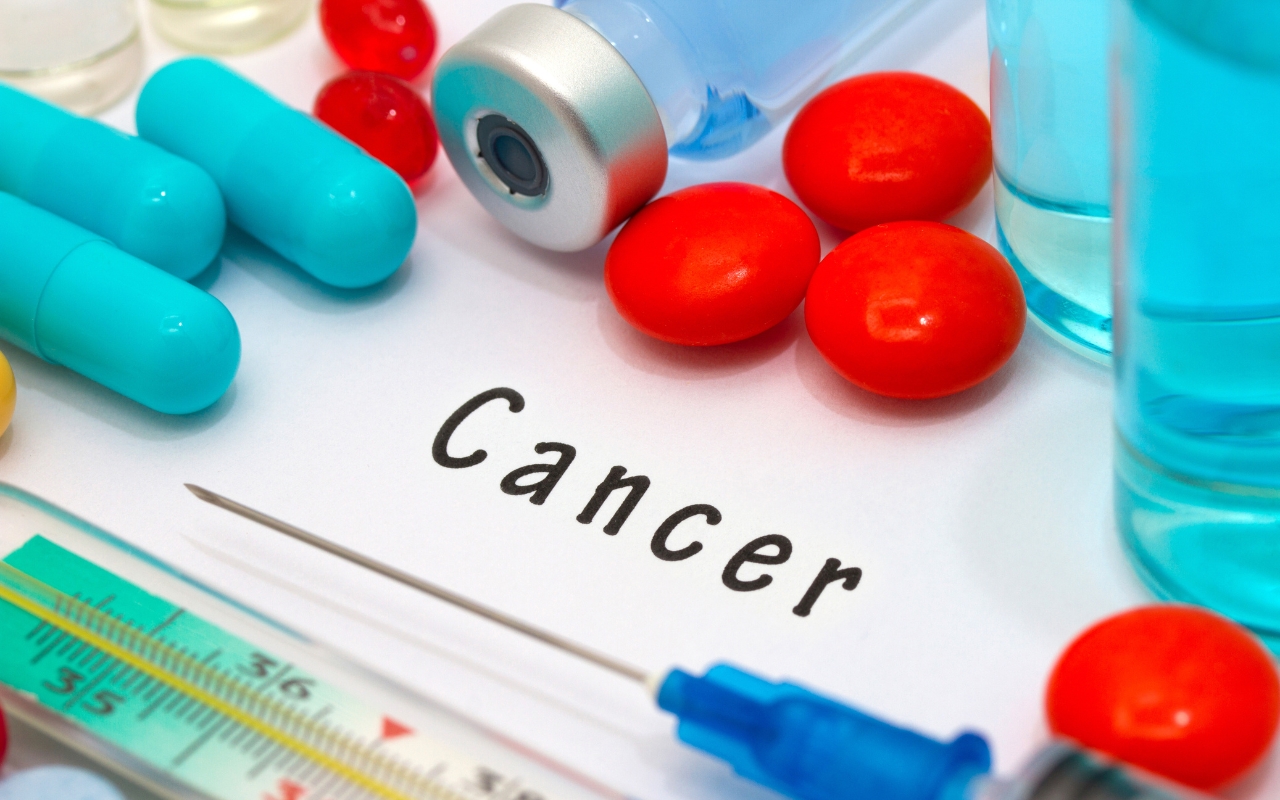Cancer, a term that incites fear and urgency, is a battle that many face. However, early detection remains one of the most powerful weapons in this fight. By understanding our bodies and being vigilant about changes, we can significantly increase the chances of early diagnosis and successful treatment. This article delves deep into the importance of body awareness, the signs and symptoms to watch out for, and the best practices for discussing concerns with healthcare professionals.
Understanding the Importance of Body Awareness
Knowing what is normal for your body is crucial. This concept, often referred to as body awareness, is fundamental in recognizing when something is amiss. The human body is remarkable in its ability to communicate distress signals. These signals, when identified early, can be the key to early diagnosis and treatment, ultimately saving lives.
Studies have shown that there is no single method or set time to check your body for cancer. Regular self-examinations, contrary to popular belief, have not demonstrated a significant increase in survival rates. For instance, a review by Cochrane found no evidence that self-exams for breast cancer reduce mortality. However, knowing your body and noticing unusual changes remain essential practices.
Signs and Symptoms to Watch Out For
Awareness of cancer's potential signs and symptoms is vital, even though these signs are often caused by less serious conditions. Despite this, early detection can make a significant difference when it is cancer. Here are some general symptoms to be aware of:
Night Sweats and Fever
Experiencing very heavy night sweats or an unexplained fever can be alarming. While these symptoms can result from infections, menopause, or medications, persistent and severe symptoms should prompt a visit to the doctor. Prolonged fever can indicate infections or, in some cases, cancers such as lymphoma.
Persistent Fatigue
Fatigue is a common symptom associated with numerous conditions, including busy lifestyles and stress. However, when fatigue is persistent and unexplained, it warrants medical attention. Chronic fatigue can be a subtle sign of cancers like leukemia or colon cancer, which affect the body's ability to maintain energy levels.
Unexplained Bleeding or Bruising
Bleeding or bruising without an apparent cause should never be ignored. This can include blood in the urine or stools, coughing up blood, or unusual vaginal bleeding. These symptoms might indicate various cancers, such as colorectal or bladder cancer. Prompt evaluation by a healthcare professional is necessary to determine the cause and initiate appropriate treatment.
Unexplained Weight Loss
Losing weight without trying might seem like a blessing, but it can also be a warning sign. Significant weight loss over a short period can be an indicator of cancers affecting the stomach, pancreas, esophagus, or lungs. It’s crucial to consult a doctor if you experience unexplained weight loss.
Persistent Pain
Pain, especially if persistent and unexplained, can be a sign of cancer. For instance, persistent headaches might indicate a brain tumor, while back pain can be associated with cancers of the spine or ovaries. Pain should be evaluated, especially when it disrupts daily activities or persists despite treatment.
Specific Areas to Monitor
While there is no need to conduct regular self-checks in a set manner, awareness of certain body changes can be lifesaving. Let’s look at some specific areas that often raise concerns.
Breast and Chest Awareness
Being breast aware means knowing how your breasts or chest usually look and feel at different times of the month. It's not about a rigid self-examination schedule but rather about recognizing any unusual changes. Lumps, changes in size or shape, or alterations in the skin or nipples should be promptly discussed with a doctor. Despite this, research indicates that women who regularly self-check are almost twice as likely to have unnecessary biopsies for lumps that are benign. Hence, the focus should be on awareness rather than routine exams.
Testicular Awareness
Knowing the normal size, shape, and feel of your testicles can make it easier to detect changes such as lumps, swellings, or discomfort. Testicular cancer is relatively rare, but it is more common in younger men. Early detection often leads to more effective treatment, so any unusual findings should be reported to a healthcare provider. Yet, similar to breast exams, routine self-checks are not necessary.
Communicating with Your Doctor
Open communication with your healthcare provider is crucial. If you notice any unusual changes, don’t hesitate to discuss them. It’s important to remember that most symptoms are not cancer but getting them checked out is a proactive step towards your health.
Preparing for Your Appointment
Before visiting your doctor, prepare a list of symptoms and their durations. Note any factors that worsen or alleviate these symptoms. This preparation will help ensure that your doctor can make a thorough assessment.
Questions to Ask Your Doctor
To make the most of your consultation, consider asking your doctor the following questions:
- What could be causing my symptoms?
- What tests do I need to determine the cause?
- What are the possible side effects of the tests?
- Are there alternative approaches to diagnosis or treatment?
Your doctor’s responses will guide you in understanding your condition and the next steps. The Mayo Clinic provides extensive resources on the questions to ask and the tests that might be performed to diagnose cancer.
The Role of Screening
While self-checks are not emphasized, cancer screening remains a critical component of early detection. Screenings are recommended for certain cancers and age groups to catch the disease in its earliest stages.
Breast Cancer Screening
Mammograms are the standard screening tool for breast cancer. Women over the age of 50 are typically advised to undergo mammograms every two years. For those with a family history of breast cancer, screenings may start earlier. The goal of mammography is to detect tumors that are too small to be felt, thereby enabling early treatment.
Cervical Cancer Screening
Pap tests and HPV testing are effective in detecting cervical cancer. Women are generally recommended to start Pap tests at age 21 and continue every three years. HPV testing may be combined with Pap tests for women over 30. These screenings can detect precancerous changes, allowing for treatment before cancer develops.
Colorectal Cancer Screening
For individuals over 50, colorectal cancer screening is advised. Methods include fecal occult blood tests, sigmoidoscopy, and colonoscopy. These tests help detect polyps or early cancer in the colon and rectum, where treatment is most effective.
Prostate Cancer Screening
Prostate-specific antigen (PSA) tests and digital rectal exams (DRE) are used to screen for prostate cancer. However, screening recommendations vary, and men should discuss the benefits and risks with their doctors. Screening is generally considered for men over 50 or earlier for those with a family history.
Lung Cancer Screening
Low-dose CT scans are used for lung cancer screening, especially for individuals with a history of heavy smoking. Screening is recommended for current or former smokers aged 55 to 74 who have a significant smoking history. Early detection can significantly improve treatment outcomes for lung cancer.
Advances in Cancer Detection
Medical advancements continue to improve cancer detection and diagnosis. Innovations in imaging, biomarkers, and genetic testing are enhancing the ability to diagnose cancer early and accurately.
Imaging Technologies
Improvements in imaging technologies, such as PET scans, MRIs, and 3D mammography, provide more detailed views of the body's internal structures. These advancements help detect abnormalities that might be missed by standard imaging methods. For instance, 3D mammography offers a clearer view of breast tissue, improving early detection rates for breast cancer.
Biomarkers
Biomarkers are substances found in the body that can indicate the presence of cancer. Blood tests measuring specific biomarkers can aid in the diagnosis of various cancers. For example, the CA-125 biomarker is used to help detect ovarian cancer, while the PSA biomarker is used for prostate cancer screening.
Genetic Testing
Genetic testing identifies mutations that increase cancer risk. For individuals with a family history of cancer, genetic testing can provide insights into their likelihood of developing the disease. This information helps in making informed decisions about preventive measures and surveillance. The Mayo Clinic offers comprehensive resources on genetic testing and counseling for cancer.
Living Beyond Cancer
A cancer diagnosis can be life-altering, but it does not define your future. Advances in treatment have transformed cancer from a terminal diagnosis into a chronic condition for many. Survivors continue to lead fulfilling lives, illustrating the importance of early detection and treatment.
Support Systems
Support from family, friends, and healthcare professionals is crucial in navigating the emotional and physical challenges of cancer. Support groups and counseling can provide a sense of community and shared experience. Organizations such as the American Cancer Society offer resources and support networks for cancer patients and survivors.
Lifestyle Changes
Adopting a healthy lifestyle can help reduce the risk of cancer recurrence. This includes maintaining a balanced diet, engaging in regular physical activity, avoiding tobacco, and limiting alcohol consumption. A plant-based diet, in particular, has been linked to a lower risk of cancer. Regular check-ups and screenings are also essential for monitoring health post-treatment.
Staying Informed
Continually educating yourself about advancements in cancer treatment and management is empowering. The landscape of cancer care is ever-evolving, with new treatments and strategies emerging regularly. Staying informed allows you to make proactive decisions about your health.
Conclusion
Early cancer detection is a vital step in the fight against cancer. While routine self-checks may not be necessary, being aware of your body and recognizing unusual changes can make a significant difference. Open communication with your healthcare provider, participating in recommended screenings, and staying informed about advancements in cancer detection are all crucial components of proactive health management.
Remember, most symptoms are not cancer, but addressing them promptly is key. With awareness, early detection, and the support of loved ones and medical professionals, the battle against cancer becomes more manageable. By taking charge of your health, you contribute to a future where cancer is detected early, treated effectively, and ultimately conquered.









